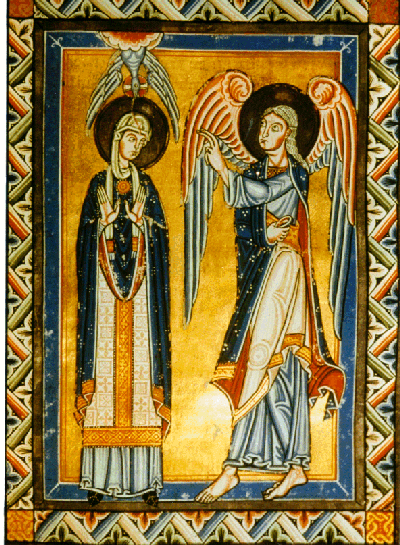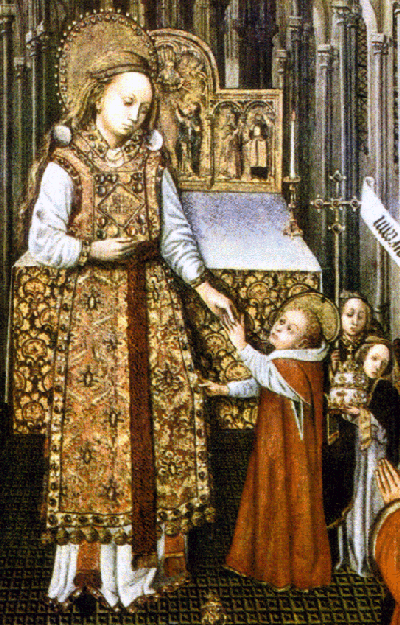Theology, like politics, is often very polarized. You’re either a liberal or a conservative, a progressive or a traditionalist, orthodox or heretic.
Besides the problems of tribalism (us against them) there is also a problem of opinion-clustering based on your tribe- if you believe a particular thing about birth control (for example), you must also believe some other particular thing about something completely unrelated, like the death penalty.
In theology and religion, particularly in and around Catholicism, those opinion-clusters go something like this:
Liberals (or progressives) are:
- For birth control.
- Against Gregorian Chant.
- For Universal Salvation and Ecumenism.
- Against Hell, Purgatory, and other “angry God” ideas.
- For liturgical dancing and contemporary music.
- Against hierarchy and clericism.
- For women’s ordination.
- Against kneeling for communion.
- For personal interpretation.
- Against strict orthodoxy.
- And so.
While conservatives (or traditionalists) are:
- Against birth control.
- For Gregorian chant.
- Against Universal Salvation and Ecumenism.
- For (that is, they believe in) Hell and Purgatory.
- Against liturgical ABUSES!
- For the hierarchy and the authentic role of the ministerial priesthood.
- Against women’s ordination.
- For communion on the tongue, while kneeling.
- Against personal interpretation.
- For strict orthodoxy.
- And so on.
Is this an absolute? No. Are there plenty of people who don’t fall completely in one place or another? Yes.
And that’s exactly the point.
There is no particular reason that certain opinions must cluster together. There is no clear line that could be drawn between one’s belief in something like the Virgin Birth and one’s tastes in liturgical music. And yet, we find that people with a particular belief in this thing over here are remarkably likely to believe in that thing over there.
This makes perhaps the least sense with liberals and progressives. From a conservative point, it makes sense that one’s opinions would conform closely or exactly with (somebody’s version of) orthodox belief. But what about the so-called free thinkers? If I have rejected one particular belief that I’m “supposed” to hold, why should I jettison the whole package? And if I do that, what exactly is the point of continuing to identify as belonging? Why work to change an institution you have no business belonging to? Is there a difference between actually disagreeing with the Church, and simply ignoring it?
Otherwise Orthodox
Otherwise Orthodox is a way to find a path through the chaos of modern dissent. Otherwise Orthodox means that I believe in the truths passed down by the “great cloud of witnesses.” I believe in traditional doctrines and dogmas. I am willing to accept, in faith, those things within my tradition that confuse, baffle, mystify, or otherwise make no sense to me.
Except.
Except for those things which I KNOW are wrong. Except for those things, I am otherwise orthodox.
90% orthodox, 10% heretic.
This is different than simply not believing in something.
Most Catholics don’t believe in the True Presence. That doesn’t make them heretics, it probably means their just uninformed. On the other hand, a friend of mine (who taught at a Catholic School) left the Church because she did’t believe in the True Presence, and felt like a hypocrite for acting like she did. That doesn’t make her a heretic either, that makes her a Protestant.
Otherwise Orthodox means I’m not uninformed, and I’m not a Protestant. My beliefs are not due to intellectual laziness, or progressive bandwagoning. I’m not a warmed-over modernist or a groovy, anything-goes liberal.
What I am is an orthodox (Anglo-)Catholic, who believes in (what I understand to be) the core tenets of the faith. Except I disagree. I dissent.
I have to.
There is no place in traditional orthodoxy for feminism. No place for the ordination of women. No place for God who is my Mother, my Sister, my Beloved.
There is no place in traditional orthodoxy for Ecumenism, for open communion, or for Universal Salvation. The Roman Catholic Church teaches that Christian unity means that everyone will eventually be Roman Catholic.
There is no place in traditional orthodoxy for my gay brother, my possibly-future-priest wife, my adoptionist mother, my Zen-Catholic father.
So other than those things. Otherwise. Besides all that.
Otherwise orthodox.

